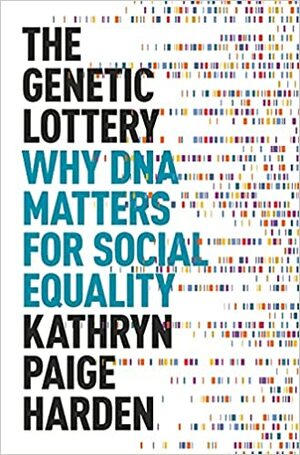
The Genetic Lottery
by Kathryn Paige Harden
Genres: Non-fiction, SciencePages: 312
Rating:

Synopsis:A provocative and timely case for how the science of genetics can help create a more just and equal society
In recent years, scientists like Kathryn Paige Harden have shown that DNA makes us different, in our personalities and in our health—and in ways that matter for educational and economic success in our current society.
In The Genetic Lottery, Harden introduces readers to the latest genetic science, dismantling dangerous ideas about racial superiority and challenging us to grapple with what equality really means in a world where people are born different. Weaving together personal stories with scientific evidence, Harden shows why our refusal to recognize the power of DNA perpetuates the myth of meritocracy, and argues that we must acknowledge the role of genetic luck if we are ever to create a fair society.
Reclaiming genetic science from the legacy of eugenics, this groundbreaking book offers a bold new vision of society where everyone thrives, regardless of how one fares in the genetic lottery.
Kathryn Paige Harden means very well in The Genetic Lottery. I do think she genuinely intends to both demonstrate that there’s a genetic component to intelligence, and to suggest ways by which this can be taken into account to make society more equal.
However, I found her writing style highly tedious, and sometimes just pointless: the whole analogy of restaurants and ingredients for explaining genome-wide association studies was just silly. She could’ve explained GWAS better by just… explaining GWAS. There were whole sections that just made my eyes glaze over, and she was very uneven about how she chose to explain things.
Overall, I did think she managed to demonstrate that intelligence has a heritable component, but I didn’t feel convinced that she had good suggestions for how to make society more equal using that information. It’s a shame because she’s not wrong that we could do more to help create a more equitable society — a lot more — but… this ain’t it.
Rating: 1/5 (“didn’t like it”)

Leave a Reply